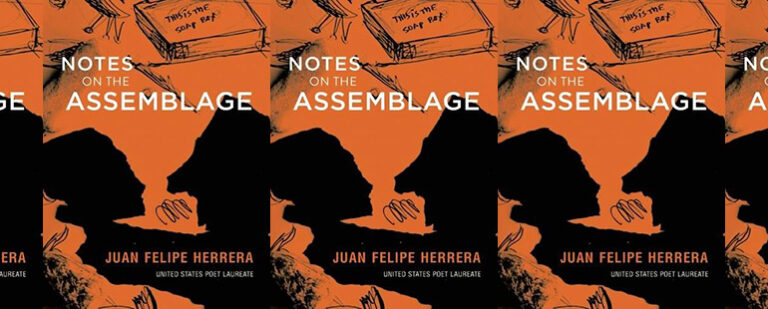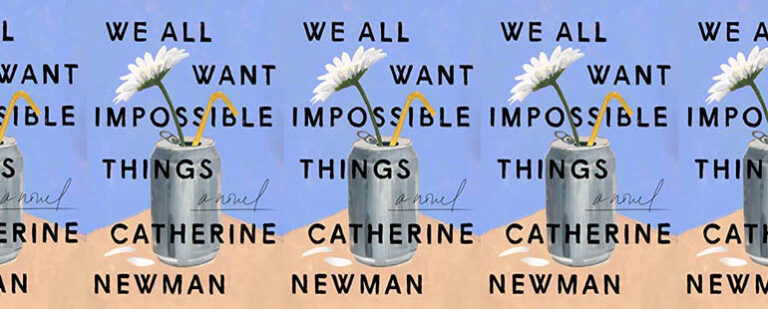What Does Your Liberation Look Like?: In Conversation with Liz Mputu and Justin Phillip Reed
 In a blog series for Ploughshares, I interview a poet and a non-poet. This time, digital media artist Liz Mputu and poet Justin Phillip Reed.
In a blog series for Ploughshares, I interview a poet and a non-poet. This time, digital media artist Liz Mputu and poet Justin Phillip Reed.
bell hooks, in her essay, “Moving Beyond Pain” criticizes Beyoncé’s latest album, Lemonade, for not being radical enough. “Female violence is no more liberatory than male violence,” she writes about “Hold Up,” a music video which features a gleeful Beyoncé, destroying car windows and a fire hydrant with a baseball bat while wearing a beautiful, fluttering gown. hooks’ plaint against Beyoncé seems to be that celebrating violence—“I don’t want to lose my pride but I’mma fuck me up a bitch,” sings Beyoncé—even if that violence is enacted by a strong female figure, does not constitute progress, or even change.
Given the near constant barrage of violent news on our phones and computers, the “public mind,” as poet Justin Phillip Reed calls it, has had to entertain and re-entertain questions like, Who is allowed to be violent? Who is not? And perhaps most importantly, is violence more or less liberatory depending on who is perpetuating it?
After the death of Sandra Bland, new media artist Liz Mputu, known for their avant-garde meditation videos, released a 26-minute video titled, “NO BLAND INDICTMENT GRIEF RELEASE VIRTUAL MEMORIAL + MEDITATION.” Mputu’s work creates an experience that is equally invested in exploring the phantasmagoria of pop culture as it is in your transcendence.
When I ask Mputu what they think of Reed’s poetry, they say, “He came off as an oracle of sorts.”
“He’s very much a seer,” I replied.
[Justin Phillip Reed]: With so much in the forefront of the public mind about police brutality against people of color, and “every 28 hours” a new death, I don’t think it’s that much of a stretch to feel haunted by those losses. That energy still has to be here, and not just here but abroad. Our borders are maintained through murder and violence.
[Anaïs Duplan]: There’s such an ethos in the global sphere now about borders and this paranoia about increasing the borders, making them stronger, keeping out.
[JPR]: For a nation that has essentially told itself these bedtime stories about its beginning as a refugee state, to now be this obsessed with keeping people out is really interesting. That has to be a kind of past coming back to haunt it. I’ve been thinking a lot about—well, always am thinking about the figure of the nigger. The idea or the many ideas and notions assigned to that figure basically make it impossible. It’s another kind of bedtime story that, I think, does haunt a lot of people.
[AD]: I’m turning now to some of the questions that you sent me in your e-mail, which [were] about how to express anger given the specter of the figure of the black savage. I was just so plagued by that question after reading your e-mail. I wanted to ask you about that anxiety in relation to the writing. Do you feel in writing a poem, when there is violence there, that same anxiety to convey those things?
[JPR]: I do think that the poem for me really is the only place where I get to express those emotions outright. It’s respite, to go into the space of the poem and be able to act out. It’s still an anxiety. The figure is still there but I get to close that distance because there’s a different kind of language I am managing and that is managing me. In the poem, I feel a lot less restricted. There’s room to move, there’s room to have fangs and claws, potentially to be a different form of myself. That feels more free.
[AD]: I want to talk about how to manage the expression of violence, feeling of violence, portrayal of violence and also, anger as a thing that you work with. A thing that is built into the work.
[Liz Mputu]: I know for a fact my work doesn’t do it unless I’m being petty. I grew up in an abusive household. My father was really angry when he was young. I feel like I never allowed myself to develop a language for anger because I thought that you could only be angry if you’re violent. When I’m dealing with my meditation videos, I leave space for anger and a range of emotions there. In our chakra system, when you go through balancing it, you have to go through all of the stages of the emotions and check in with yourself and confront that. In order to be able to go through a lot of that, you have to expose yourself to the things that are causing you that grief. In a lot of my meditation videos, I’ll force you into that position so that you can then work through it. Otherwise, it’s hiding somewhere in the back of your mind or you don’t recognize that it’s something that you need to be dealing with because it’s so deeply buried.
[AD]: Can violence be liberatory?
[JPR]: I think violence can and is liberatory, as a means. I don’t think that violence is the thing that gets you to the end. I remember thinking the purpose of me writing [“Quarantyne”] was to imagine the afterscape of a violent revolution. There are some sections in “Quarantyne” that would come up that mostly had to do with this idea[:] now that we’re alone together, what’s left? If violence is the means to achieve liberation, what do you do with—because after it’s shown itself as productive, what are you going to do with it after that? Maybe that’s a question that people are running throughout civilization and throughout revolutions. I think about it. The freedom to be violent is a different thing for me. Trapped in that might be also this other problem, which is that freedom or liberation can’t or shouldn’t look like white privilege. Is that what I’m rubbing up against? Is it white freedom to be violent? Does that look like liberation?
[AD]: What [does] liberation look like and whose liberation looks like what? I’m stuck on this question that you raised: if violence is seen to be productive, what do you then do? There’s so much of an emphasis in our society on who has the right to bear arms and [on the fact] that certain people are authorized weapon-bearers and other people are not. I think about the police. The basis of all of our law and judicial systems is this monopoly on violence.
[JPR]: I think there are many many ways of being implicated in the terrible acts of state agents. Looking at things around my apartment, I don’t know who was abused in making this material available to me. I could find out but then what would I do and how complacent will I be?
[LM]: I saw this image once and it said, “The most terrifying thing about the Internet is not having this archive of all the people that you’ve been but recognizing that you’re actually just a pattern in a cycle.” […] I understand that when you put out negative energy or when you hold that vibration, all you’re doing is attracting that towards you. I used to play around with that for a while when I was young. I would act up and act a fool and go full blast, because I was in pain. I didn’t understand myself. I just wanted to feel very intensely. But it turns around and bites you in the butt when you find yourself being exploited or abused. For a while, I was being critical of the art world in this way online. I think that’s how I got some of my audience. I was so vocal. I was always throwing shade at white feminist art. […] But I started making it less about the ideas around it and more about specific artists and that wasn’t the way to approach that. Attacking somebody who isn’t even willing to have a conversation about it because they’re already threatened by an attack. I kept doing shit like that, just being petty, because I felt entitled and because I felt wronged. And because the art world is really corrupt in that way. Now, years later, I can see myself getting that same treatment but I know it’s because I have already sent that out. I try to offer people an energy that I want them to offer back to me.
[AD]: This brings me to thinking about selfhood and a way of thinking about selfhood that takes into account these connections between people and the possibility of transferring a certain energy or harboring a certain energy or receiving it. For a long time, I thought about selfhood as this contained, restricted process of individuation whereby you become the monolith of yourself. For me, selfhood and visibility feel, if not tied together, in parallel thought-universes.
[LM]: I can see that. I mean, the way that you’re able to be selective with online communities that we curate for ourselves—we’re offering ourselves vision of things that we want to see in order to make us more who we feel ourselves to be.
[AD]: This piecing together of yourself from your environment.
[LM]: You have your online profile [that] you’re presenting to others but then, in a lot of ways, your timeline is also you, just divvied up through these other personas. You’re wanting to see this other version of yourself, piecing together yourself as other people.
*
This interview has been edited and condensed.


